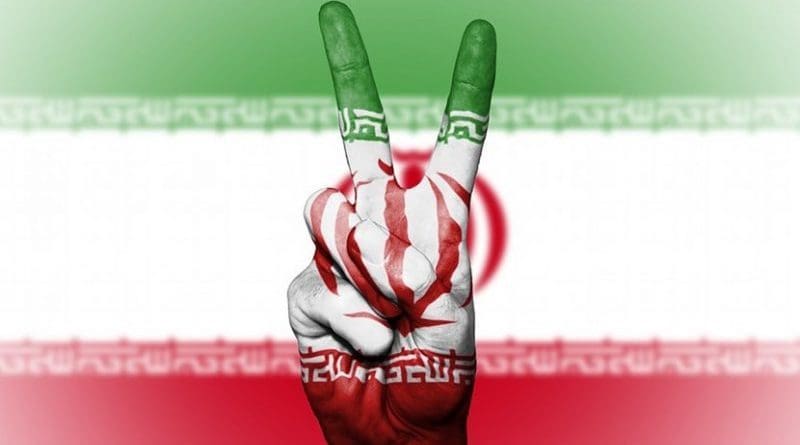Free Iran World Summit 2021: Installing Raisi As President A Sign Of Regime’s Final Stage – OpEd
By Hamid Enayat
Saturday, July 10, was the start of the three-day Free Iran World Summit, which was held virtually. Participation included Iranians from around the globe, along with supporters of the resistance. In all, more than 50,000 locations in 105 countries participated in the event. There were participants spread across a 20-hour time difference.
Maryam Rajavi, the President-elect of the National Council of Resistance of Iran (NCRI), opened the summit with a speech discussing the recent election of Ebrahim Raisi as President. She noted his role in the 1988 massacre of 30,000 political prisoners, which has been deemed a crime against humanity.
“Khamenei, Ebrahim Raisi, and other perpetrators of the 1988 massacre should be put on trial for crimes against humanity and genocide. The UN Security Council must set up this trial,” said Rajavi. These calls for justice were used throughout the first day of the summit, as various speakers highlighted the ongoing abuses of the regime against human rights, the economy, and Iranian society as a whole.
Speakers at the summit also asked the international community to recognize the struggle of the Iranian people to overthrow the regime, thus ending the corruption and oppression that has hampered its social and economic progress.
“We urge the UN Security Council to arrange for the international prosecution of Raisi and hold him accountable for crimes against humanity and prevent his presence at the next session of the UN General Assembly. The mullahs’ regime will never give up acquiring nuclear weapons, export of terrorism, and warmongering in the region,” said Rajavi, noting that the regime should be subjected to international sanctions under Chapter Seven of the UN Charter. She also called for bringing to justice Supreme Leader Ali Khamenei, Ebrahim Raisi, his President, and Judiciary Chief Gholam-Hossein Mohseni Eje’i.
For the Iranian resistance, the growth of protests throughout Iran demonstrates that the regime is not meeting any of the needs of its people. Currently, the Iranian economy is in free-fall, while the social unrest continues to grow. The COVID-19 pandemic has slowed protests, but not eliminated them. In fact, many of the regime’s actions that allow COVID-19 to run rampant through the population seemed focused on keeping the people distracted.
A fatwa was also issued against the purchase of vaccines from the U.S., UK, and Europe, thus reducing the availability of vaccines for the Iranian people. They are left vulnerable to the variants that continue to spread around the globe. The result is that the death toll is high, because the healthcare system in Iran has been neglected for years by the regime, without many of the basic medical supplies and personnel available.
In the new era of Raisi’s presidency, the hostility and enmity between the regime and Iranian society will only continue to intensify, just as when the Shah declared martial law and appointed a military general as Prime Minister, only to end up disposed by the people. It was a hasty move to purge and eliminate internal factions on the path to solidify power, but the regime’s longevity is in serious doubt.
“Our asset is the rebellion and revolt of the army of youths who took to the streets in November 2019. And our power comes from a nationwide network of Resistance Units who have been working all days of the year ceaselessly,” said Rajavi. In 2020, those units have doubled their activities and operations, despite the efforts of the regime to oppress them and the pandemic negatively impacting Iranian society.
The increasing levels of poverty throughout Iran have been acerbated by the COVID-19 pandemic, which has put the economy into a virtual freefall. Some industries have not paid workers for over a year or more. Iran no longer has a middle class, as even the best industries barely pay enough for a person to live.
Young people cannot find jobs, which means they cannot start families and build their lives. A generation is being stunted by the corruption and mismanagement of the regime. The goal of these resistance units is to break the hold of the regime over Iranian society and to reclaim the natural resources of their country.
“The Iranian Resistance defends with a clear plan the right to autonomy for all oppressed ethnic minorities within the framework of Iran’s unity and territorial integrity and holds up the banner of just relations based on respect for independence, national sovereignty, and mutual interests with its neighbors and the world,” said Rajavi.
The rest of the speakers reiterated the points that Rajavi set out, bringing in points of view from around the world. Rallies around the globe connected live with the Summit. There were many individuals from various countries throughout Europe, including Janez Janša, Prime Minister of Slovenia, Stephen Harper, former Prime Minister of Canada, and Franco Frattini, former Minister of Foreign Affairs of Italy.
It was also pointed out that the regime will never abandon its efforts in the nuclear field, exporting terrorism through their embassies, and warmongering or active meddling throughout the Middle East, including Iraq, Lebanon, and Syria. The changes in the region have diminished the power of the regime, but not eliminated it entirely.
Simultaneous with the Summit, thousands of Iranians rallied in Berlin’s Brandenburg Gate, and in 16 other capitals and cities, including Paris, Washington, London, Amsterdam, Stockholm, Oslo, Vienna, Rome, and Geneva. There were several speeches, including one from the former Secretary of State Michael Pompeo, and 30 U.S. lawmakers, including Senators Menendez, Cruz, Blunt, and Cardin.

